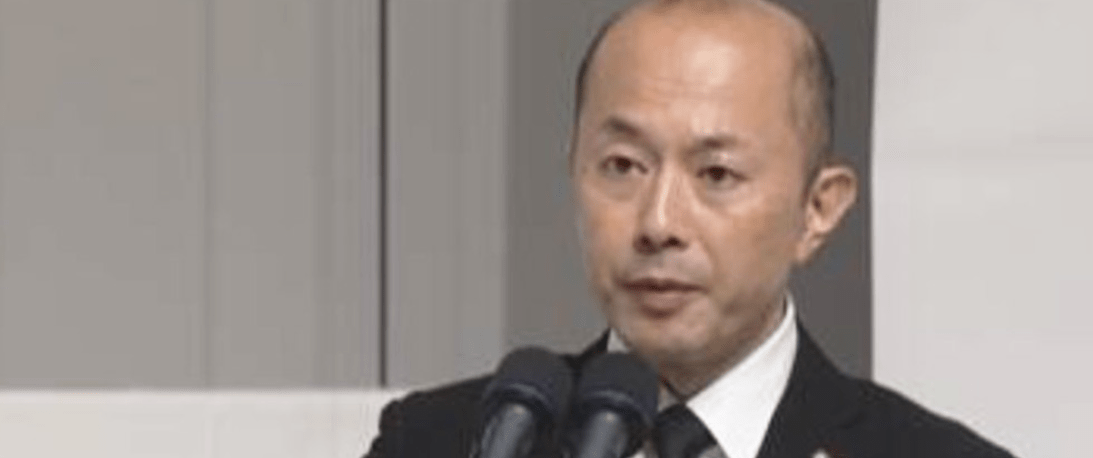I think that the decision by Shiro Suzuki, Nagasaki’s mayor, to disinvite Israel from the yearly Nagasaki commemoration ceremony, a decision that caused multiple Western countries to boycott the event, is quite extraordinary. It may even become a milestone.
This decision to ask Israel’s ambassador to not attend the ceremony is not only important because of the internationalization of Israel’s genocide, which is happening despite huge efforts at containment made by Western countries. It is significant because Japan rarely disobeys the US, or risks arousing its anger.
There are over 50,000 American soldiers on Japanese soil at all times, and one could argue safely that Japan still remains under post-WW2 occupation, much like Germany (35,000 American soldiers).
This decision by Shiro Suzuki is so important because it is so political, in the best and most precise meaning. It recognizes and addresses the present moment, and real-time is always radical (compare this to the ICJ’s and ICC’s sluggishness). It does so in a very public and open way (compare this to anonymous reports about certain countries being displeased with Israel).
And, finally, it does so while demonstrating unwillingness to continue a ritualistic facade, and one so prestigious and celebratory. Real-time, open and no business as usual gives Shiro Suzuki high political scores. This is why Western powers were so taken aback by this: how does an Asian even imagine defying the will of great white overlords? What’s next? Uncooperative Arabs? Pakistanis with an attitude problem? We can’t have that.
– Earlier this year we were exhilarated to hear Malaysia’s PM Anwar Ibrahim admonish Germany’s Olaf Scholtz about Western double standards (demonstrated by only caring so deeply for Ukraine, but never for Palestine), and we still remember former Irish PM Leo Varadkar’s comments to Biden’s face about the deep connection between the Irish and the Palestinian peoples.
This is the light in which we need to see Shiro Suzuki’s decision: as a moral stand against the West’s deep corruption – and waning hegemony. This is also interesting because Japan is in such a tough place, in terms of historical memory: a former Nazi Germany partner in war and brutal Asian colonizer, and a longtime loyal servant of US imperial needs in the Asia-Pacific region.
Still, with clarity and resolve, Shiro Suzuki takes a stand and signals that some things in life are more important than Western approval. This is both refreshing and a gentle, yet powerful, form of decolonization
Backgrounder: On 2 August 2024, Suzuki announced that Israeli ambassador Gilad Cohen would not be invited to attend ceremonies marking the 79th anniversary of the Atomic bombing of Nagasaki due to concerns over protests against the war in Gaza. In response, the ambassadors of the United States and the United Kingdom said they would not attend the event on 9 August and would send lower ranked diplomats instead. The ambassadors of Russia and Belarus were also not invited to the event. The Palestinian ambassador was invited.
#Nagasaki mayor Shiro Suzuki defended today his decision to invite Palestine instead of Israel to the peace ceremony. The threats from U.S. and its vassals to boycott the annual event to commemorate the hibakusha could not work on the mayor, whose parents were a-bomb survivors.
@Nippon_Times: Also, NHK showed the Israeli Ambassador on screen when Hiroshima’s governor was speaking about wars in which the strong trample on the weak: “At present, we still see wars in various parts of the world. The strong defeat the weak. The weak are trampled down. In contemporary wars, men and women, young and old, are shot by bullets or torn into pieces by missiles, rather than by arrowheads and swords. Great powers, which are expected to protect international order established by the United Nations, overtly attempt to invade other countries by violating international laws and changing the status quo by force.

This is the reality that humans have continued to see since the prehistoric age. In this context, so-called realists suggest a policy of “force for force” and “a nuclear weapon for a nuclear weapon.” When they suggest this policy, however, they deliberately ignore another piece of reality or the fact that once people invented a weapon, they used it without exception. Chemical weapons, for example, have continued to be used even though their use is banned. As long as nuclear weapons exist, they will surely be used again someday.”
